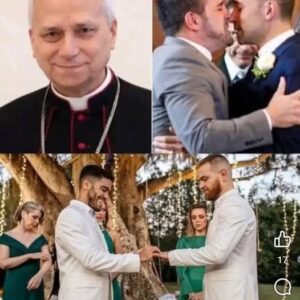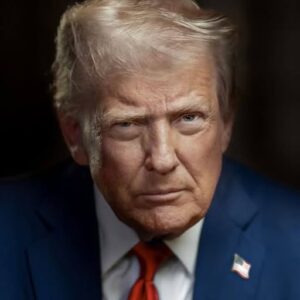Pope Francis passed away on April 21 at the age of 88, sending waves of sorrow through the global Catholic community and beyond. The Argentine-born leader, known for his humility, simplicity, and outspoken advocacy on global issues, died following a long series of health challenges. Just a day before, he had appeared on the balcony of St. Peter’s Basilica, blessing the crowds during Easter Sunday—a moment now viewed as a poignant farewell.
His death was officially confirmed by Cardinal Kevin Farrell, who announced that at 7:35 a.m., the Holy Father had “returned to the house of the Father.” According to Vatican medical authorities, Pope Francis died of a massive stroke that led to a coma and what was described as irreversible cardiocirculatory collapse. It followed a stretch of serious respiratory illnesses that had kept him hospitalized for more than a month earlier in the year.
Born Jorge Mario Bergoglio in Buenos Aires in 1936, Pope Francis was the son of Italian immigrants. He originally trained as a chemical technician before entering the Diocesan Seminary of Villa Devoto. Later, in 1958, he joined the Society of Jesus, beginning a lifetime of religious dedication. He earned degrees in philosophy and theology, taught literature and psychology, and was ordained as a priest in 1969. His rise through the ranks of the Catholic Church was steady and deeply rooted in pastoral and academic service.
By 1998, he had become Archbishop of Buenos Aires, and in 2001, he was made cardinal by Pope John Paul II. When Pope Benedict XVI resigned in 2013, Bergoglio became the first Latin American pope, choosing the name Francis in honor of Saint Francis of Assisi. His papacy marked a turning point—one shaped by a strong focus on social justice, inclusivity, environmental protection, and a return to core Gospel values.
Pope Francis championed the rights of the poor, spoke out against economic inequality, and brought renewed attention to global climate change. His encyclical “Laudato Si’,” released in 2015, issued a powerful call to humanity to care for the planet and its most vulnerable inhabitants. “Young people demand change,” he wrote, emphasizing the moral responsibility of addressing the environmental crisis. “The Creator does not abandon us… Humanity still has the ability to work together in building our common home.”
In contrast to previous pontiffs, Francis also took a surprisingly progressive stance on LGBTQ+ rights, calling laws that criminalize homosexuality “unjust” and saying that “being homosexual isn’t a crime.” These positions earned him admiration from many and resistance from more conservative factions within the Church.
His papacy, however, was not without controversy. He faced criticism for initially dismissing allegations of clerical sexual abuse in Chile—a decision he later admitted was a grave error. The Pope ultimately defrocked Cardinal Theodore McCarrick after the Vatican found him guilty of abusing children and adults, signaling a tougher stance on abuse than the Church had previously taken.
Despite his global status, Francis remained deeply committed to personal humility. He rejected the traditional papal apartment in the Apostolic Palace, opting instead to live in the modest Casa Santa Marta guesthouse. His lifestyle choices reflected his message—modesty over luxury, service over status.
His love for the simple things in life extended to his meals. According to his longtime chef, Sergio Dussin, Pope Francis was a lover of humble foods—polenta, beans, bread, pizza, and cheese. “Francis is a foodie,” Dussin once said. “He’s unpredictable. He sticks to the ceremony until he sees someone, and then he stops to give them a hug or greet the staff.”
Despite suffering from severe health issues—including losing part of a lung, undergoing abdominal surgeries, and enduring a significant respiratory illness earlier this year—Francis never seriously considered resigning. In a 2024 interview with “60 Minutes,” he stated plainly, “I have never thought of resigning.” Even in his final weeks, he remained active, releasing statements, meeting leaders, and addressing global concerns.
Yet, he did make arrangements in case of death. His will, released shortly after his passing, revealed decisions that broke with Vatican tradition. Rather than being buried in the papal crypt beneath St. Peter’s Basilica, Francis requested to be laid to rest at the Basilica of Santa Maria Maggiore—an ancient Marian sanctuary dear to his heart. He visited it before and after every Apostolic Journey, entrusting his travels and prayers to the Virgin Mary.
In his final testament, he wrote, “Feeling that the sunset of my earthly life is approaching… I wish to express my testamentary will only with regard to the place of my burial.” He asked that his remains be buried in the earth, in a simple tomb between the Pauline and Sforza Chapels, with no elaborate inscriptions—just the name: “Franciscus.”
He also made financial provisions for his burial, requesting that the expenses be covered by a private donation and arranged through Monsignor Rolandas Makrickas. “May the Lord give the deserved reward to those who have loved me,” he wrote, “and will continue to pray for me.”
His final words, uttered just hours before his death, were a whisper of gratitude to the man who had stood beside him through his worst days—his personal nurse and healthcare assistant, Massimiliano Strappetti. “Thank you for bringing me back to the Square,” Francis said, referencing his ride through the crowd on Easter Sunday.
That final ride, unscheduled and spontaneous, was his last act of connection to the people. Smiling and blessing children from the Popemobile, it was not just a gesture—it was his final gift.
Now, as the Church prepares to honor his legacy, the world reflects on a papacy that rewrote expectations, bridged centuries of tradition with the present, and brought the Catholic Church closer to the streets, to the margins, and to the people. Pope Francis’ journey may be complete, but his influence is destined to resonate for generations to come.





